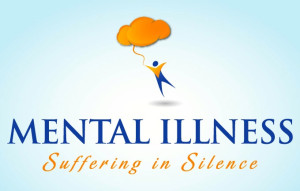Realities of mental health challenge families
Publisher’s note: This is one of several stories about mental health issues in the Lake Tahoe Basin that will be running through October. The other stories may be accessed from the Home page under Special Projects, then click on Mental Health.
By Kathryn Reed
It never goes away. That’s the reality of living with mental health issues.
Amy Snelson is quick to admit she can’t do it alone. It takes the support of her husband, family, friends and NAMI (National Alliance on Mental Illness) to help her cope.
She has three sons; all of whom have mental health issues.
“Opening up has been good therapy,” Snelson told Lake Tahoe News. “The guilt is horrific. Had I known (the family history), I don’t know if I would have had children.” And with hindsight she wonders if she would have recognized the symptoms earlier.
Her sons are 23, 30 and 32. She lives in South Lake Tahoe with her husband, Gary, who is not the father of her kids. Snelson’s sons live in Southern California. Once a month for a week at a time she goes down there. They are at different levels when it comes to being able to function in society and needing to be institutionalized.
Snelson is actively involved in their lives, advocating for care and yet keeping a respectful distance. While being a parent can be a balancing act even when children are adults without extenuating circumstances, when health issues are involved, grey areas of intervention are even greater.
Then there is the law that can prevent parents from taking action. With one child she is his conservator, so she has more rights. But, still, it’s not always enough.
“Doctors don’t talk. There is never an open discussion and there is supposed to be,” Snelson said. “I’ve asked for a re-evaluation of medications and nothing is happening.”
 Her story is not unique. That’s the problem, and the sad reality.
Her story is not unique. That’s the problem, and the sad reality.
Mental health in this country is not treated the same way as physical health. A stigma still surrounds matters of the brain. The uninformed believe people have control over mental health, or that it isn’t real, or think people are weak, even less than whole.
What can be worse is the treatment once families start to get help.
“It’s been a difficult journey because the mental health community is not cooperative,” Snelson said. “Once they get someone stabilized, they kick them out.”
Snelson has learned to be persistent, to keep pushing.
A family history of mental illness is common. So is having some traumatic event trigger an episode. That event can be anything from a car accident to being rejected by friends to violence.
Snelson’s oldest son has been diagnosed as with paranoia schizophrenia; this was 11 years ago. His biggest delusion is that he believes his food has been poisoned. He’s 6-feet-tall and weighs 121 pounds.
Her middle son tried to hang himself when he was in eighth grade. Of the three, he showed the earliest signs that something wasn’t quite right. He deals with severe depression, but believes he can overcome this on his own.
The youngest has schizophrenia affective disorder.
There isn’t a day that goes by that Snelson doesn’t think about her kids. And many days she simply breaks down. She admits the stress affects her marriage, that she didn’t expect to be buying her kids clothes and giving them gas money as this stage in their lives.
To help herself cope Snelson is involved in NAMI, which has a chapter on the South Shore. She also surrounds herself with positive people. She reads as much as she can; learning about her sons’ illnesses, how to cope and ideas for working within the system. She also sees a therapist.
“The biggest things today I need to work on is I feel embarrassed and I feel guilty for being embarrassed,” Snelson said. “How can a mother let her child wear dirty clothes or have body order?”
And, yet, they are adults and she can only do so much.
“My fear is what will happen when I’m dead in terms of their living situation,” Snelson said.



Thank you so much for sharing. You are an inspiration to those of us who have similar struggles.
Thank you to Lake Tahoe News for raising awareness about Mental Health in our community. Thank you Snelsons for sharing your story and motivating others to do the same. Let’s all keep talking about mental health and continue advocating for lives of quality and mutual respect, without discrimination and stigma.